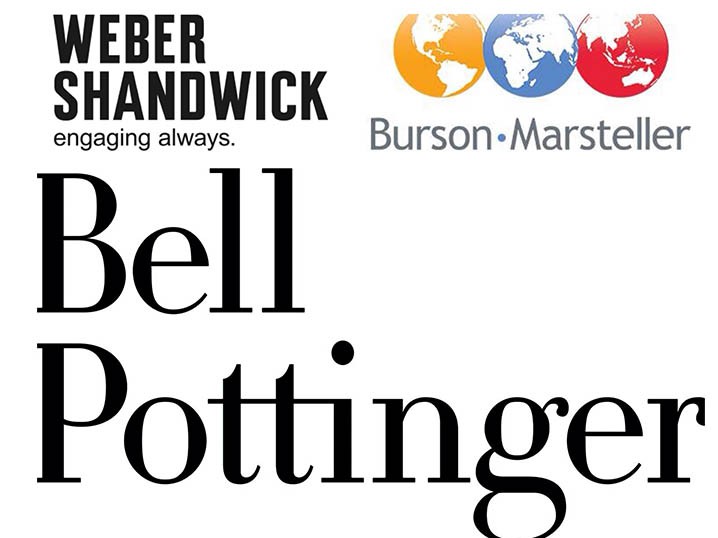News - Advertising
Justifying the unjustifiable?
by Iain Akerman
May 10, 2017
.jpg) Advertisement
AdvertisementIf nothing else, eyebrows were raised when it emerged early last March that PR firm Weber Shandwick had been hired by Egypt’s General Intelligence Service to help improve perceptions of the country among Washington policymakers.
The image of the Egyptian intelligence agency (also known as the Mukhabarat) is, after all, far from ideal. According to Amnesty International, Egyptian authorities have used mass arbitrary arrests to suppress demonstrations and dissent, have detained journalists, human rights defenders and protesters, and restricted the activities of human rights organisations. They have also subjected hundreds of detainees to enforced disappearance, while officers of the National Security Agency (NSA) and other security forces have tortured and otherwise ill-treated detainees.
Yet the appointment is worth $1.2 million a year for Weber Shandwick (and $600,000 a year for government-relations agency Cassidy & Associates), according to documents filed with the US Department of Justice.
But in a marketing and communications world, where ethics is now viewed as everything by consumers, how does a PR company justify working with such regimes?
Few within the PR industry are willing to answer this question. Probably because considerable numbers of them have carried out work for regimes most would consider unsavoury.
Bell Pottinger, for example, has represented some of the world’s most notorious clients, including Chilean dictator General Pinochet, Belarus dictator Alexander Lukashenko, and the Assad family in Syria. Hill & Knowlton worked for the Chinese after the Tiananmen Square massacre in 1989.
Burson-Marsteller, meanwhile, has worked with numerous regimes of ill repute and is – rightly or wrongly – considered one of the worst reputation launderers.
Now Weber Shandwick faces questions. Why is it willing to work for Egypt’s General Intelligence Service? How does it justify such work? Shouldn’t a line be drawn in the sand? And shouldn’t agencies in general refuse to work for such regimes?
Tim Bell – of Bell Pottinger – aligns what he does to that of a lawyer. In the legal world everybody has the right to representation. Tim Bell (of Bell Pottinger) tries to draw a parallel between the persuasion campaigns he does for despots with a lawyer defending somebody in court.-- Tamasin Cave, director of SpinWatch.
“Yes, from an ethical standpoint they should,” replies Tamasin Cave, director of SpinWatch, a UK-based organisation that investigates the way the public relations industry and corporate and government propaganda distort public debate and undermine democracy. “In the same way that a lot of companies now don’t work for tobacco firms (normally under duress) because they are seen as socially unacceptable and do such awful harm. Often they’re dropped because of external pressure, but there is a precedent there.
“Bob Leaf, who was at the time CEO of Burson-Marsteller, was asked the same question: ‘Have you ever drawn the line when it comes to acting for foreign despots?’ And he said: ‘The only client I ever turned down was Gaddafi’. So he turns down Gaddafi, but Burson-Marsteller worked for the Indonesian government when they were accused of genocide in East Timor.
“Bell Pottinger is another one. Peter Bingle, who was chief lobbyist at Bell Pottinger, said – and this is another quote, this time from a select committee inquiry into lobbying a number of years ago – that: ‘We had a call from Zimbabwe asking to advise them, we said thank you very much but no. It would have been a fairly malign campaign.’ So they drew the line at Zimbabwe. But Bell Pottinger worked for Pinochet, they worked for Lukashenko in Belarus. It seems pretty arbitrary where they draw the line, and I think it is based on the potential reputational damage to their company for being seen to be representing some dreadful people.”
Why do they do it?
“Because it’s really lucrative,” says Cave. “It must be very difficult if you’re a commercial entity that makes money out of doing this kind of work. Take a firm like Portland, which did some work for the Russian government. Putin can write off millions of dollars out of his national budget and it means nothing to him, so the sums that you’re talking about are phenomenal. The temptation must be huge.”
How do they justify working with such clients?
“Tim Bell – of Bell Pottinger – aligns what he does to that of a lawyer. In the legal world everybody has the right to representation. He tries to draw a parallel between the persuasion campaigns he does for despots with a lawyer defending somebody in court. Which I think is a real stretch, but he’s a very experienced PR person and that’s what he does for a living. He’s a spinner.”
The arsenal of manipulation and persuasion available to PR agencies is considerable. They will peddle alternative narratives, while lobbying firms are filled with well-placed insiders. They will hire officials who have connections or are able to smooth relations with various people, building relationships to the benefit of their clients. They will also help sway public opinion so that decisions, however untenable, can be made.
“There’s evidence of lots of online manipulation,” says Cave. “In other words, making the finding of critical content all but impossible. This is done by driving negative content down the Google rankings, relying on the fact that few of us click beyond the first page of results. Agencies also create new positive content that fools the search engines into pushing the ‘dummy’ content above the negative, hiding the articles they don’t want you to read. Then there’s the manipulation of Wikipedia, the monitoring of opposition groups and critics of a regime. They’ll also make sure that all the international media has been briefed and is fully onboard. It’s about selling the information environment around decision makers, which allows certain decisions to be made.”
Isn’t this intrinsically evil?
Cave laughs. “It’s very difficult to talk about good lobbying and bad lobbying, because as a keen environmentalist I would say that what the car lobby does to bend regulations in its favour is bad,” she says. “But if you were someone who worked in the car industry it looks like they’re protecting jobs. One person’s air pollution is another person’s wage. It’s very difficult.
“It’s more clear cut when you have the tobacco industry or a despotic regime, but the way we approach it is that it needs to be above ground. It needs to be fully transparent. So, if Weber Shandwick is being paid $100,000 a month, it needs to be clear what work it is doing for that money. Who it’s approaching, the kind of work it’s conducting – whether that’s influencing public debate or whether it’s employing former officials to broker relationships. It all needs to be above board and transparent so we can see and judge accordingly.”
The spin would then be visible. “Yes,” replies Cave. “And lobbyists always say that the most effective lobbying is that which goes unnoticed by the public.
“But you can’t ban it, because lobbying, in principal, is a democratic right. In theory it’s a good thing. You expect governments to listen to outside interests, whether that’s corporations or residents’ groups. But in practice most of it is in fact corporate lobbying for profit.”



.jpg)





.jpg)




